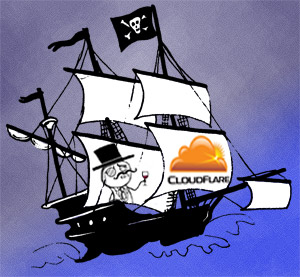
Portland neighborhood map from Home Team Portland
Status Update
We’ve been house hunting. As in, to buy a house.
Nothing quite lays class warfare bare like house hunting. It makes you aware of both your own privilege and knee-jerk prejudices, but also your place in the hierarchy of things as you find out just house much houses in certain parts of town cost — and how much money you actually need to make to live there. (Houses in the Alberta district are going for half a million dollars — who has that kind of money?)
It also makes more clear the less obvious, to me anyway, reasons that certain housing trends perpetuate themselves. For example: in general, buyers of single family homes don’t want to live near renters, or multi-family housing units. Affordable housing buildings are right out. You might not mind living next to an apartment building, but if you lose your job and have to sell your house, will you be able to sell it? Even if you find someone who doesn’t mind living next to an apartment either, that person has to also consider selling it further down the line. Even if you don’t mind living next to an apartment building, and you have a dozen people interested in the house interested in buying your house and also don’t mind, they might still pass on it, worried that if they have to sell it down the line, they won’t be able to find someone who doesn’t mind living next to an apartment building.
So other people’s prejudices and preferences end up influencing your own behavior, reinforcing development patterns in place for decades. Weird stuff.
Anyway, we’re probably gonna land in East Portland (the area east of 82nd ave). I’ve been obsessed with this part of town for a while now, even before I thought we’d end up buying a house there.
I could read stuff about East Portland all day, but here are a few starters:
- The Forgotten Portland
- The Oregonian article on how the city turned East Portland into a slum district to avoid pissing off wealthier southwest Portland residents. Highlight:
“Personally,” said Mark White, the former Powellhurst-Gilbert neighborhood association president, “I can’t imagine an urban planner at any time in the city’s history thinking, ‘You know, I think it’s a really, really good idea to cram tens of thousands of people into an area with no place to shop, no place to work and no infrastructure.’”
(The answer of course is that they didn’t think it was a good idea — they just didn’t want apartment buildings in their own neighborhoods. NIMBYism at its worst.)
- The city that never happened: East Portlanders came close to being incorporated as city of 125,000. (It would have been called Columbia Ridge, and would have been the second largest city in Oregon at the time).
- On a more positive note, Neighborhood Notes lists some of the good things about East Portland.
If you really want to go deep, The Oregonian has an ongoing series on the area. And a couple years ago they did a series on how the Portland area’s subsidized housing has been clustered mostly in East Portland, instead of being distributed throughout the city — even though such clustering is against state law.
The place we’re likely to end up living is quite nice. It has paved roads and sidewalks and grocery stores and access to public transit. But I get worked up thinking about how badly other parts of East Portland got shafted.
Browsing
- Adrian Chen argues that despite the hype, Anonymous hasn’t been particularly effective politically:
Despite its anointing by Coleman, Anonymous is not a vanguard; it’s the relic of an already twice-failed dream. Anonymous is the latest and most dysfunctional marriage between a particular strain of countercultural utopianism and the boundless faith in technology that first appeared in the 1960s. Fred Turner, in From Counterculture to Cyberculture, traces the evolution of what he calls the New Communalism into contemporary techno-optimism. In the 1960s, the New Communalists became convinced that traditional political action wasn’t working. They attempted to create utopian communes removed from society in order to practice the “politics of consciousness.” The commune movement collapsed, but by the 1980s some of its most prominent adherents had seized on the burgeoning Internet. These idealistic geeks conceptualized the Internet as an “electronic frontier” on which they could create virtual communities that lived up to the ideals of nonhierarchy and total personal freedom and fulfillment they’d tried to implement in the real world. In this new formulation, information technology replaced agriculture and ecology as the tools that would liberate us from corrupt society. The Internet became, as Turner writes, “an idealized political sphere…in which authority was distributed, hierarchies were leveled, and citizens were linked by invisible energies.”
- Christopher T. Fan examines the way the nerd identity has been racialized, and hits on a few other points as well:
The conflation of whites and Asians uses diversity to dramatize a crisis of diversity. When we hear repeated that Facebook, Google, and LinkedIn are 91 percent white and Asian, be warned that Asians are being used as human shields. When it comes to leadership positions, there is no “white and Asian” problem. There, it’s a “white and male” problem. Where Asians are overrepresented is in “tech” positions. Whites lead, Asians code. Solnit has been absolutely correct in her insistence on the parallel between Silicon Valley and the Gold Rush era. Then, as now, California profits off coolie labor.
- Paul Ford delivers an ode to retro computing



